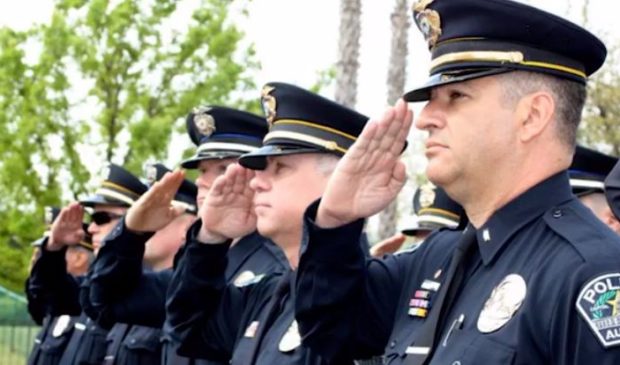Police union contract includes surprises
Wednesday, August 22, 2018 by
Jo Clifton The union representing police officers has presented the city with a proposed contract, as well as a study by Angelou Economics challenging the city’s well-worn assertion that Austin officers are paid more than their cohorts in other Texas cities.
In addition, the union has agreed with activists that except for the police monitor, that contract should not include civilian oversight.
According to the study, across the U.S., police base wages have grown by 9.6 percent over the last five years. In Houston, the study says, wages have grown by at least 11 percent over that time period and wages in Fort Worth have grown by 9.2 percent. Austin police wages have grown by just 5.5 percent over that same time period, while the Texas inflation rate has been 7.7 percent.
The bottom line, the Austin Police Association says, is that the base wage increases for Austin officers have lagged behind other major metro areas in Texas and the national average for police officers.
APA President Ken Casaday had some harsh words for the Council that rejected a contract his group had worked out with city negotiators last December. Without reference to the vote, Casaday said this Council is “the highest-paid City Council in the state of Texas and they continue to get pay raises.”
Council usually gets the same raise as other civilian city employees, with this year’s proposed salary increase for all civilians to be 2.5 percent.
“There’s hundreds of people in the city that get more than police officers, and they get pay raises every year and don’t have to bargain over it,” Casaday said.
Speaking of last week’s bargaining session, Casaday said, “We laid out the financials (and) provided the city with a contract. Now, the ball’s in their court.”
The study concludes that after adjusting for cost-of-living differences between major Texas cities, officers from other departments are paid higher wages, especially in their first years of service.
The union is proposing a 5.3 percent increase in base wages for the first year of the contract, 2018-19; a 2.6 percent increase for the second year, 2019-20; and a 2.7 percent increase in base wages for 2020-21. That same increase would be in effect in the final year of the contract, 2021-22.
According to the study, a rookie’s base pay is currently $46,769 in Austin and $49,038 in San Antonio. However, the base pay for rookies in Dallas and Houston is considerably less, at about $34,000 and $36,000, respectively. The base pay for a rookie in Fort Worth is $42,280, the study says.
During the first year, the Austin officer makes an estimated $61,890 and the San Antonio officer makes $10,000 more. In the eighth year of service, the San Antonio officer makes $77,735 and the Austin officer makes $72,263, the study says.
However, in the 16th year of service, the Austin officer is about $5,000 ahead of the San Antonio officer, at $87,302. The other cities pay considerably less for that tenure.
The wage differences may come as a surprise to Council members as well as to the public. And there is a second surprise.
Representatives of the APA and several activist groups who have pushed for independent investigations of alleged police misconduct have agreed that such investigations should be done outside the police chain of command and outside the contract between the union and the city. Therefore, the contract the union presented to the city’s labor negotiators does not include a provision for civilian oversight. However, it does include provisions about the Office of the Police Monitor.
Chas Moore, executive director of the Austin Justice Coalition, told the Austin Monitor, “We understand how the (police monitor) can remain in the contract,” because the monitor can sit at the negotiating table. But that is not true of members of the city’s now-defunct Citizen Review Panel.
Moore said his coalition, which includes representatives from other groups such as the American Civil Liberties Union, had talked to people in five cities about their civilian oversight. Every one of them agreed that it should not be under the umbrella of the police union contract, he said.
“You have to have something outside the (labor) negotiations,” Moore said. “When I think about civilian oversight in Austin, Texas, it’s literally like the fox guarding the henhouse. It fundamentally doesn’t make sense.”
Brian McGiverin, an attorney representing the Austin Justice Coalition, told the Monitor he is doing research on civilian oversight and is encouraged by what he is finding in state law.
Video still courtesy of the city of Austin.
The Austin Monitor’s work is made possible by donations from the community. Though our reporting covers donors from time to time, we are careful to keep business and editorial efforts separate while maintaining transparency. A complete list of donors is available here, and our code of ethics is explained here.
You're a community leader
And we’re honored you look to us for serious, in-depth news. You know a strong community needs local and dedicated watchdog reporting. We’re here for you and that won’t change. Now will you take the powerful next step and support our nonprofit news organization?




